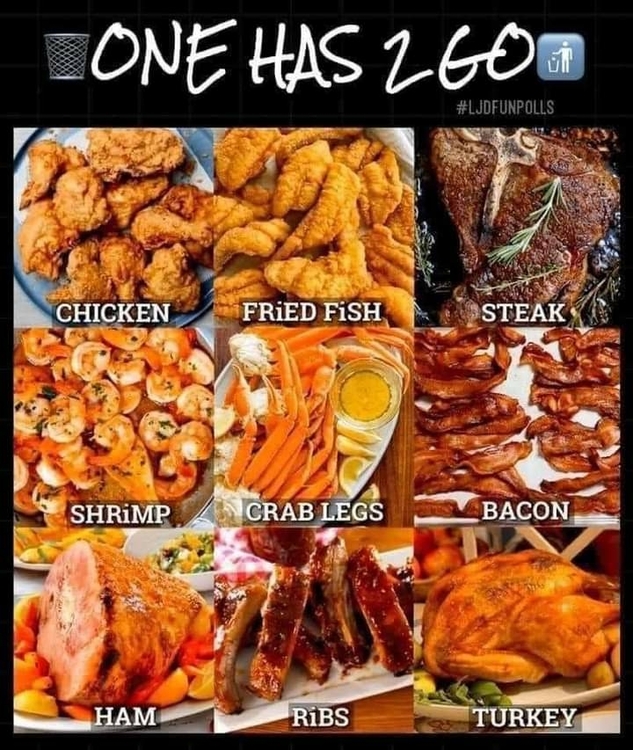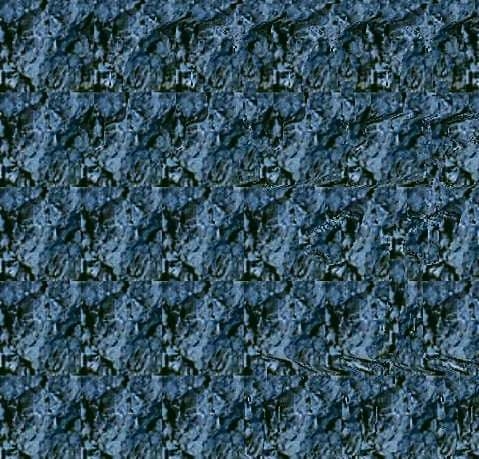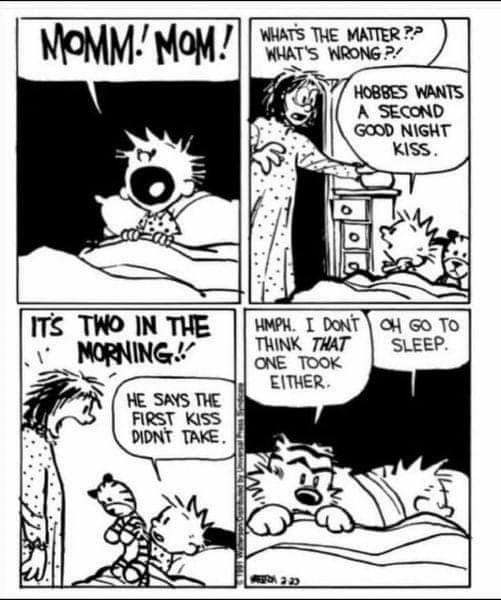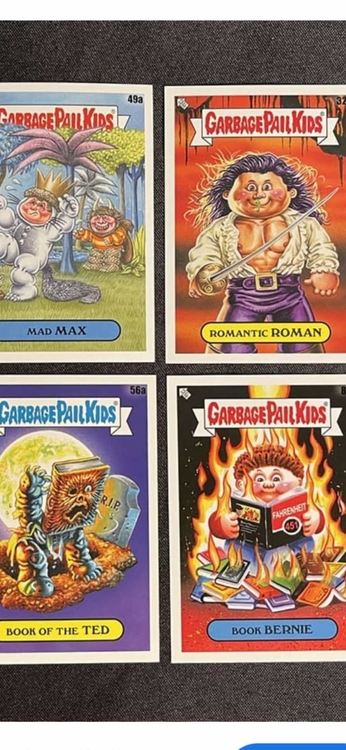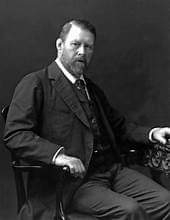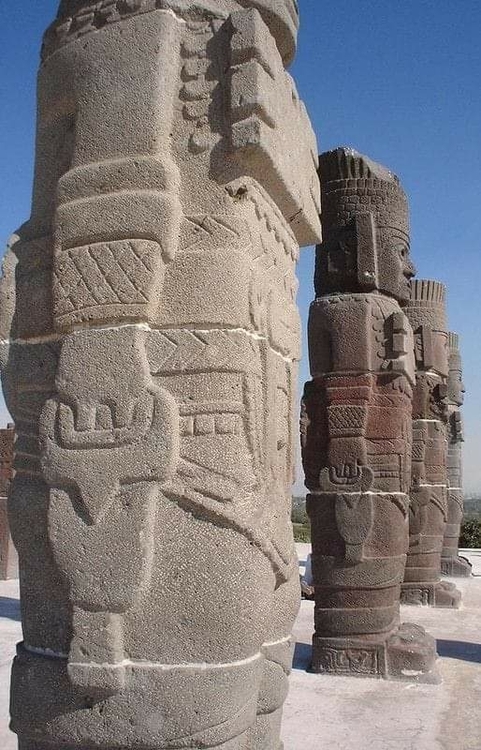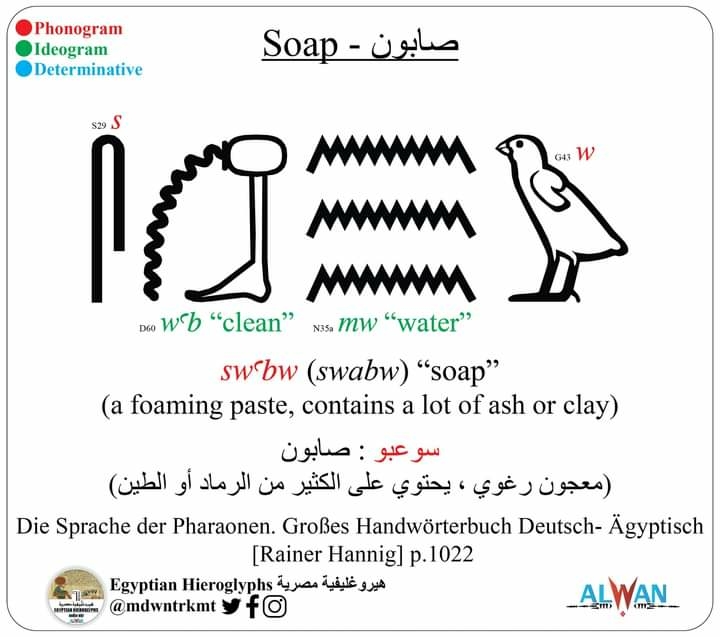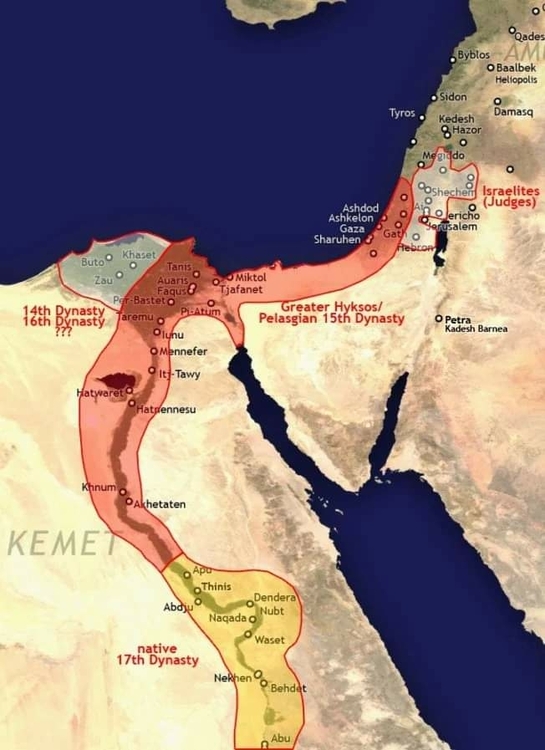Latest Posts
Showing topics posted in for the last 1 day.
- Past hour
-
TRUMP 2024: PUTTING AMERICA AND AMERICANS FIRST
Monte1076 replied to RETIREDFAN1's topic in Political Arena
But, but, but...the parties switched! Democrats told us so! -
-
-

Military articles, memes, and cartoons
RETIREDFAN1 replied to RETIREDFAN1's topic in Music/Pop Culture
-
- Today
-
-
Contrary to popular belief, Bram Stoker did not base his most famous character, Count Dracula, on Prince Vlad II of Romania (at the time called Wallachia). Most of his novel was completed and his vampire protagonist was to be named Count Wampyr. Then, during his research, he came across William Wilkinson's book "An Account of the Principalities of Wallachia and Moldavia". In this book were brief passages about "Voivode Dracula" (never referred to as Vlad), who crossed the Danube to fight the Turks and helped to drive them out of Wallachia, but was betrayed to them by his brother. What intrigued Stoker was a footnote that in Romanian, Dracula meant Devil (although it actually means "of the dragon," in reference to Vlad's father's membership in the Order of the Dragon). Liking the name for that reason, Stoker changed the name of his vampire from Wampyr to Dracula. Another story is that the Dracula character is actually based on actor Henry Irving, for whom Stoker served as personal manager and with whom he did not get along. This story is given some credence by the fact that the Dracula character in the play, which Stoker did not write, is quite different from the Dracula character in the book, which Stoker did write, and most film versions of the story are based on the play, not the book. In the course of Irving's tours, Stoker travelled the world, although he never visited Eastern Europe, a setting for his most famous novel. Stoker was a member of The London Library and it is here that he conducted much of the research for Dracula. About the year 1971, there were plans to make a film on the tumultuous working relationship of Stoker and Irving. Peter Cushing was set to play Stoker and Christopher Lee as Irving. The project was eventually canceled.
-

PIZZAGATE....... Pedophiles in high places
RETIREDFAN1 replied to RETIREDFAN1's topic in Political Arena
-

TRUMP 2024: PUTTING AMERICA AND AMERICANS FIRST
RETIREDFAN1 replied to RETIREDFAN1's topic in Political Arena
-

TRUMP 2024: PUTTING AMERICA AND AMERICANS FIRST
RETIREDFAN1 replied to RETIREDFAN1's topic in Political Arena
-
Congrats to Coach Worley, a great coach for us as well as a great guy!
-
BIBLICAL ARCHAEOLOGY BRIEF By Dan Willoughby The other day I was asked about soap in the Bible, well l tell you what I know. In Biblical Archaeology, there are no clear paths to ascertain what the ancient Israelites actually used for soap. But in the Hebrew Bible we are informed that people used a cleansing agent called "natron" and "lye", of which was a sodium carbonate base alkaline soap (Jeremiah 2:22). However, down in ancient Egypt they used "swabw", and the formula attached hereto suggest that it was soda ash and clay dirt. At any rate, in the ancient world it was a rough way to take a bath.
-
The Bible Hints that the Hyksos Conquered Egypt There may be an indication from the book of Samuel that the Hyksos were Amalek and also conquered Egypt. After the Amalekites attacked Ziklag in southern Israel and took two of David’s wives God instructed David to pursue Amalek. On the way to battle they found an Egyptian who had been a slave to a an Amalek master. As it says in Samuel I chapter 30 verses 11–14 11 They found an Egyptian in a field and brought him to David. They gave him water to drink and food to eat — 12 part of a cake of pressed figs and two cakes of raisins. He ate and was revived, for he had not eaten any food or drunk any water for three days and three nights. 13 David asked him, “Who do you belong to? Where do you come from?” He said, “I am an Egyptian, the slave of an Amalekite. My master abandoned me when I became ill three days ago. 14 We raided the Negev of the Kerethites, some territory belonging to Judah and the Negev of Caleb. And we burned Ziklag.” The question is how did an Egyptian become a slave to an Amalekite? Also why does the Bible want us to know this? I think the Bible is hinting here that the Amalekites, the arch enemy of the Israelites, did conquer Egypt. In Egyptian history they were known as the Hyksos. In addition, this incident in the book of Samuel could have occurred after the Hyksos were already forced by Ahmoses to leave Egypt and return to Canaan. This Egyptian slave was one of the many slaves they took with them. As Manetho writes regarding the Hyksos, "they were cruel, massacring some and taken the wives and children into slavery” The Bible informs of this to show the justice of God. Just as the Egyptians enslaved the Israelites they too would be eventually enslaved by a foreign nation. Measure for measure.
-
Job Introduction and Chapter 1 By: Jim Crews Job is the first of five books that are known as books of poetry. Who wrote the book, and when? No one really knows. Jewish tradition attributes the book to Moses, and other authors have been suggested. Some say it was written by Job himself. Others say it was Elihu, Solomon, Isaiah, Hezekiah, or maybe even Baruch, who was Jeremiah's scribe. Who wrote it is not important or God would have revealed the author. In what time period did Job live? The historical events appear to be set during the Patriarchal Age, sometime between Noah and Moses. There are no allusions to the Law of Moses in the book, but there is a mention of the flood. Job functions as a priest in offering sacrifices for his family, similar to what we find with Abraham. His longevity is typical of the patriarchs. For those reasons, Job is often placed historically as a contemporary with Abraham. We know from his being mentioned in other passages of scripture that Job was a real man, and not a fictional character. Now let's get into the book of Job. Job 1: 1 - 5 Job was from the land of Uz. He was blameless and a follower of God. He had 7 sons and 3 daughters. He was blessed with huge herds of cattle. He also had many servants. He was known as the greatest man of the people of the east. Like the Patriarchs, Job sacrificed to God himself. He did this for his family as well, in case they had sinned against God. Job 1: 6 - 12 There was a day when the sons of God and Satan all came to present themselves before God. God questioned Satan and then mentioned Job to him. God knew that Satan had been working on Job, so He brought it up to teach him a lesson. Satan, of course, didn’t catch on. Fulfilling his role as accuser, he accused Job of only being loyal to God because God had blessed him with so much. God allowed Satan to tempt Job, in order to test him. Job 1: 13 - 19 All that Job had been blessed with was taken away from him in the space of one day. He was left with only his wife and the 4 servants who brought the news. Job 1: 20 - 22 How did Job react to this tragedy? Job accepted it. He blessed God in his time of great loss as he had in his times of great wealth. He didn’t sin, nor did he blame God for his losses. This showed that Satan had been wrong. All had been taken from him, yet Job still worshiped God. Satan had lost this round, as God knew that he would.
-
Vol.XX No.XII Pg.8 February 1984 Stuff About Things Robert F. Turner When I was very young, back in the dark ages, today's "four letter words" were strictly forbidden. Oh, they were around all right, but we were taught that nice people did not soil their lips, or offend the ears of others with them. (We learned that soap will wash out the mouth, if not the mind; and may even jog the memory for a time.) We knew what the law said. But boys work hard at getting around parental law. Our "gang" sometimes gathered in a far corner of the woodshed to play this little game. One boy would declare, "It's not nice to say '—' " Another would immediately respond, "YOU said it!" At this the first boy would ask, "Said what?" And his critic would say, "—." Now this gave a third boy the opportunity to charge, "YOU said it." "Said what?" "—"' And soon we all had tasted the forbidden fruit. With luck (not getting caught at it) we could practice our complete secret vocabulary without losing our "little angels" status. (My mother would whip me yet if she knew this — and I would thank her for it. Don't show this to my grandchildren.) It may have been curiosity, the spirit of adventure, or a streak of rebellion that authored that game. We knew better, although I can't believe we were aware of its seriousness, or possible long-range effects. Now when adult brethren excuse ungodly conduct with child-like excuses they are playing a dangerous "game" with God — and He sees and hears all in the woodshed. Rumors are spread to ruin a brother's reputation — as we "protect the brother- hood." Speculative teachers feed pride, trample the weak, in the game called "free search for truth." Editors hungrily seek some new "issue" to sell papers; and throw ethics to the wind as they "stamp out error." Paul was slanderously reported to have said, "Let us do evil that good may come." He wrote, their damnation was just (Rom. 3:8), and he was right. When we abandon the principles of Christianity in our claim to "fight the good fight," we are playing games with God. Our weapons are not carnal (2 Cor. 10:3-5), and the use of carnal means is an abandonment of the gospel armor. We must plant truth in hearts, knowing "God is not mocked" by games.
-
President Biden: "Four more years! Pause."
Monte1076 replied to Monte1076's topic in Political Arena
Because of course they did.


